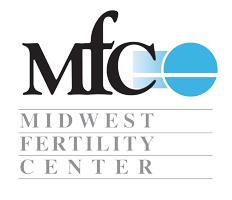Becoming a mother is often portrayed as a time of overwhelming joy and happiness, but the reality of postpartum adjustment can be far more complex. One of the most challenging conditions that some new mothers face is postpartum depression (PPD). This mental health condition can impact a mother’s well-being and her ability to care for her newborn. Recognizing the early signs of PPD is crucial for getting the support and treatment needed. Here’s a guide to understanding and identifying the early signs of postpartum depression.
What is Postpartum Depression?
Postpartum depression is a form of depression that can occur after giving birth, usually within the first year postpartum. Unlike the “baby blues,” which is a temporary and mild mood swing that many women experience, PPD is more severe and persistent, requiring medical attention and support.
Early Signs of Postpartum Depression
1. Persistent Sadness or Hopelessness
Feeling persistently sad, empty, or hopeless is one of the hallmark signs of PPD. If you find that these feelings are overwhelming and don’t seem to lift, even with support from friends and family, it might be a sign that you need professional help.
2. Severe Fatigue or Exhaustion
While fatigue is common with a newborn, PPD can make you feel exhausted beyond what would be expected from lack of sleep alone. This isn’t just feeling tired; it’s a profound lack of energy that can make even the simplest tasks feel insurmountable.
3. Difficulty Bonding with Your Baby
Struggling to connect with your newborn or feeling indifferent towards them can be a sign of PPD. This might manifest as a lack of interest in caring for your baby or feeling emotionally disconnected from them.
4. Anxiety and Overwhelming Worry
Excessive worry or anxiety about your baby’s health, your ability to parent, or other aspects of your life can be an early indicator of PPD. If these feelings become intrusive and affect your daily functioning, it’s worth seeking help.
5. Changes in Appetite or Weight
Postpartum depression can affect your appetite, leading to significant changes in eating habits. This might involve eating too much or too little, resulting in noticeable weight loss or gain.
6. Sleep Disturbances
While disrupted sleep is common with a newborn, PPD can cause persistent sleep problems, such as insomnia or sleeping too much. If sleep disturbances continue despite efforts to manage them, it may be a sign of postpartum depression.
7. Feelings of Guilt or Worthlessness
Excessive feelings of guilt, inadequacy, or worthlessness are common in PPD. You might feel that you’re failing as a mother or that you’re not capable of handling the demands of parenthood, even though these feelings are not reflective of your true abilities.
8. Irritability or Anger
If you find yourself feeling unusually irritable or angry, this could be a sign of PPD. These emotions can be directed towards yourself, your baby, or even others around you, and can contribute to relationship difficulties.
9. Thoughts of Self-Harm or Harm to the Baby
Thoughts of self-harm or harming your baby are serious signs that need immediate attention. If you experience these thoughts, it’s crucial to seek professional help right away.
10. Withdrawal from Social Activities
Postpartum depression can lead to withdrawing from social interactions and activities that once brought you joy. If you find yourself isolating from friends and family or avoiding social engagements, it might be a sign of PPD.
What to Do If You Recognize These Signs
If you or someone you know is experiencing these symptoms, it’s important to seek help. Here are some steps to take:
1. Talk to Your Healthcare Provider: Your doctor or midwife can provide a diagnosis and recommend appropriate treatment options. This may include therapy, medication, or a combination of both.
2. Reach Out for Support: Connect with loved ones or support groups. Talking about your experiences with others who understand can be comforting and provide valuable insights.
3. Consider Professional Counseling: A mental health professional specializing in postpartum depression can offer coping strategies and support tailored to your needs.
4. Practice Self-Care: Make time for self-care activities that you enjoy and find relaxing. This can be challenging with a newborn, but even small moments of self-care can make a difference.
5. Educate Yourself: Learning more about PPD can help you understand what you’re going through and why seeking help is crucial.
Postpartum depression is a serious condition that affects many new mothers, but recognizing its early signs can pave the way for effective treatment and support. If you or someone you know is struggling, remember that help is available and reaching out is a sign of strength, not weakness. By addressing these symptoms early, you can work towards a healthier, more fulfilling postpartum experience and ensure both you and your baby thrive.

